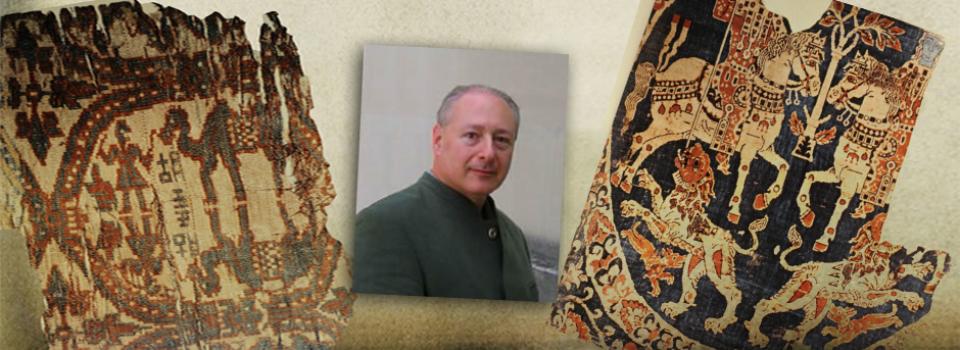联系我们
邮箱:shanghai.cga@nyu.edu
电话:+86 (21) 20595043
微信公众号:NYUShanghaiCGA
地址:
上海市浦东新区杨思西路567号
W822室

© 2024 All Rights Reserved

地点: 1505教室,上海纽约大学
日期: Tuesday, November 1, 2016
时间: 18:00 to 19:30 CST
Despite its vastness, the Eurasian landmass has proved, even in premodern times, to be easily bridged by cultural and artistic diffusion. This lecture will focus on the first millennium C.E., and on two artistic developments of continent-wide significance.The first is the evolution of medallion-based ornamental patterns in the Roman Empire, and their transmission across Eurasia as far as China and Japan by the 8th century. The second is the spread of Greco-Roman sculptural styles to South-Central Asia, their modification through contact with local artistic idioms, and the role which the resulting hybrid styles played in the evolution of Buddhist art, in particular the image-type of the standing Buddha.
James Trilling received his Ph.D. in Fine Arts from Harvard University in 1980, and took a position as Curator of Old World Textiles at the Textile Museum in Washington D.C. He then left the museum to pursue a career as an independent scholar, dividing his attention between Byzantium and the long-neglected field of the history of ornament.Trilling has been a Visitor at the Institute for Advanced Study and has taught at the Rhode Island School of Design, Amherst College, and the University of Vienna.
Introduction by Assistant Professor of Ancient History Armin Selbitschka.
致来访者:
• 须预约报名
• 须在学校入口处出示身份证
• 学校不提供停车服务
• 请从世纪大道1555号的南门入口处进入学校
• Taxi card
• 地铁:乘坐2/4/6/9号线,到世纪大道站下车,从6号出口出站
• 公交:乘坐169/987路公车,到世纪大道浦电路站下车
邮箱:shanghai.cga@nyu.edu
电话:+86 (21) 20595043
微信公众号:NYUShanghaiCGA
地址:
上海市浦东新区杨思西路567号
W822室

© 2024 All Rights Reserved